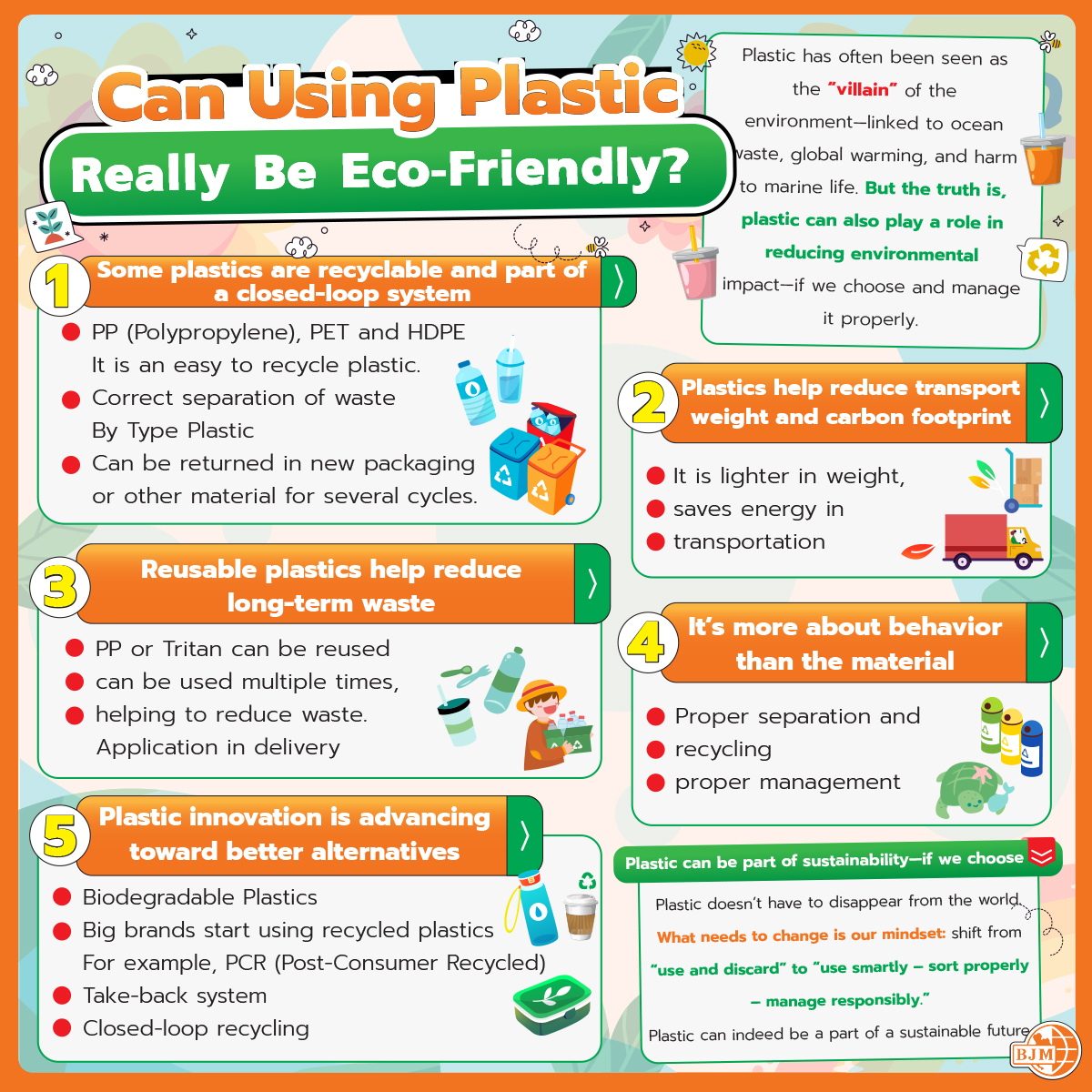Can Using Plastic Really Be Eco-Friendly?
Over the past few years, plastic has often been seen as the “villain” of the environment—linked to ocean waste, global warming, and harm to marine life. But the truth is, plastic can also play a role in reducing environmental impact—if we choose and manage it properly.
So, the real question is: “How can using plastic still be eco-friendly?”
1. Some plastics are recyclable and part of a closed-loop system
Not all plastics are problematic. For example, PP (Polypropylene), PET, and HDPE are types that are widely recyclable and supported by recycling systems in many countries. When combined with proper waste separation and disposal, these materials can be turned into new packaging or industrial products multiple times.
2. Plastics help reduce transport weight and carbon footprint
Compared to materials like glass or metal, plastic is significantly lighter, which means less fuel and energy are needed for transportation—translating into fewer greenhouse gas emissions.
3. Reusable plastics help reduce long-term waste
Switching to durable, reusable plastics—like PP or Tritan—reduces reliance on single-use plastics. This is especially impactful in delivery services, office environments, or cafeterias where reuse can be easily implemented.
4. It’s more about behavior than the material
Whether plastic is eco-friendly depends on how we handle it after use. If sorted properly, recycled effectively, and not discarded into the environment, plastic can coexist with nature responsibly.
5. Plastic innovation is advancing toward better alternatives
- Bio-based plastics made from plants that are biodegradable
- High-quality recycled plastics (PCR – Post-Consumer Recycled), now adopted by many large brands
- Take-back systems and closed-loop recycling models being developed and scaled
Plastic can be part of sustainability—if we choose wisely and manage it well
Plastic doesn’t have to disappear from the world. What needs to change is our mindset: shift from “use and discard” to “use smartly – sort properly – manage responsibly.”
With this approach, plastic can indeed be a part of a sustainable future.


